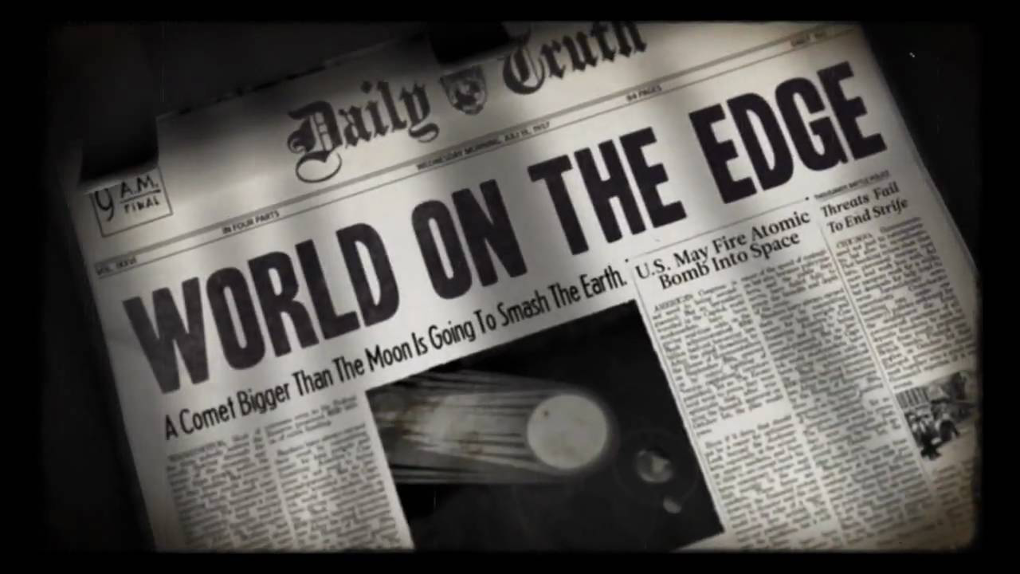Quick Hits
Daily brief research updates from the cognitive sciences

Many years ago I first heard the advice of “Don’t watch the news if you want to be happy”. The reason is that news is more often than not negative – I have written about this negativity bias previously – as the saying goes in news circles “if it bleeds, it leads”.
So, avoiding this dose of negativity is probably a good thing. However, since I first heard this decades ago the world has changed with access to news ever more present – it is not just on the television, it is on every device that we carry and at every minute throughout the day whether through formal news websites or through social media applications. Now it seems much harder than ever to avoid the negativity of the news.
But is this really negative?
McGaughlin et al. have just published a study which they conducted with 1’100 US adults. The found that about 16.5% had problematic news consumption. This is when the desire to follow the news becomes similar to addiction with constant checking of the news almost 24 hours a day and being pulled into a constant cycle of trying to relieve one’s anxiety by checking the news but then getting further pulled in.
It might seem obvious that this is not a good place to be mentally but is this what they found?
They did indeed. With 73.6% of those with problematic news consumption reported experiencing mental ill-being “quite a bit” or “very much”. This is compared to only 8% of other participants.
But on top of this 61% those with problematic news consumption also reported physical ill-being “quite a bit” or “very much” in comparison to only 6.1% of other participants.
Those are quite dramatic figures and the surprising outcome is that this is correlated so strongly to physical as well as mental well-being.
This shows that that bit of sage advice of avoiding the news seems to be very good advice but more than that avoiding the blackhole of continuous news consumption.
Unfortunately, there seems to be no easy way out of this. 24-hour news consumption is possible and very easy. Maybe a more positive reporting would at least help. I’m not holding my breath and I’ll stick to my general news avoidance strategy (while keeping myself informed).

Andy Habermacher
Andy is author of leading brains Review, Neuroleadership, and multiple other books. He has been intensively involved in writing and research into neuroleadership and is considered one of Europe’s leading experts. He is also a well-known public speaker, speaking on the brain and human behaviour.
Andy is also a masters athlete (middle distance running) and competes regularly at international competitions (and holds a few national records in his age category).
Reference
Bryan McLaughlin, Melissa R. Gotlieb, Devin J. Mills.
Caught in a Dangerous World: Problematic News Consumption and Its Relationship to Mental and Physical Ill-Being.
Health Communication, 2022; 1
DOI: 10.1080/10410236.2022.2106086
More Quick Hits
How Meditation Helps Pain In Your Brain
Quick HitsDaily brief research updates from the cognitive sciences es, meditation can help with pain by changing your experience of it. I reported on that here. Another piece of research just published shows that how experienced meditators and...
When Stress Is Good For Brain Functioning
Quick HitsDaily brief research updates from the cognitive sciences tress gets a bad rap – understandably it is a negative experience and has been shown over long periods of time, and with high intensity, to cause multiple negative outcomes, from...
Put Your Smartphone Down and Let your Mind Wander – You’ll Be Happier
Quick HitsDaily brief research updates from the cognitive sciences here’s a lot been said about smartphone usage and how it can be used and abused. Most of this concern revolves around usage in children or teenagers, however, with some research...
The Amazing Impact Of Reaching Out To Your Old Friends
Quick HitsDaily brief research updates from the cognitive sciences few weeks ago a friend I hadn’t seen for about 10 years sent me a message and asked if I had time to meet up. I was elated. "Sure," I immediately messaged back, "when and where?!"...
Really? Belief In Conspiracies Not Increasing
Quick HitsDaily brief research updates from the cognitive sciences e may feel like we’re in an age of conspiracy theories, that social media is turbocharging the wild and wacky theories, and the so-called information bubbles are sending people down...
You Wake Up 100 Times Each Night – And That Helps Memory
Quick HitsDaily brief research updates from the cognitive sciences have written numerous posts and articles on sleep and the brain (review here), and the evidence is crystal clear. Good and consistent sleep is essential to all aspects of physical...






